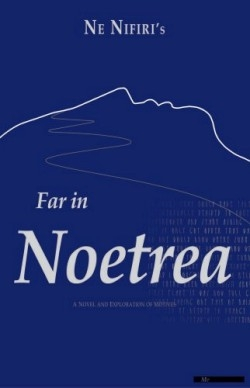
Far in Noetrea
“I exist. It’s sweet so sweet so slow…” —Jean Paul Sartre
In Sartre’s novel Nausea protagonist Roquentin cannot enjoy experiences that once gave him pleasure because he cannot find meaning in existence. Roquentin is Sartre’s vehicle to demonstrate his philosophical treatise of existentialism.
Lucian Leonte seems to have used Nausea as a model for his novel Far in Noetrea. This is forgivable and even commendable. After all Sartre was influenced by writers and philosophers like Dostoevsky and Nietzsche; he either validated or refuted their ideas and built his own thought system to answer their shortcomings. However Leonte rehashes old questions without adding anything new. To ask his questions and build his philosophical base Leonte created his protagonist Stefan. He places Stefan and the reader in the unfamiliar territory of Noetrea to seek answers to questions like “Why do we exist?” and “What happens after we die?” When the character Aristio asks him what is true and what are his beliefs Stefan responds sarcastically:
All right. What’s true? My senses are true or else I wouldn’t be if only for crossing the street…matter is true and the only substance pain is true or pleasure if you want…mortality is true. From what I hear I’m pretty sure I’m going to die. Uhhh…that’s about where I’m at.
The names of the characters in Leonte’s novel offer important keys to understanding his work. The name Stefan means “crown or wreath” and possibly represents a man blessed in search of a wealth of knowledge that he may already possess but not recognize. Kal a character Stefan encounters more than once is an individual who lives in the moment and his name means “yesterday and tomorrow.” In Native American his name would be pronounced “Kal ho na ho” which translated is similar to “seize the day.” In Hindi Kal translates to “if there is a tomorrow or not.” The character Aristio challenges Stefan by saying there are no absolutes and nothing to worry about at the end of existence. His character is similar to Sartre’s character in Nausea “The-Self-Taught Man.” In Nausea Roquentin is invited by the Self-Taught Man to become a member of the French Socialist Party. Aristio whose name means “best” in Greek and French and “one who is inflexible” in Spanish invites Stefan to join a group of individuals who debate philosophy.
Far in Noetrea has more questions than answers. The dialogue is forced and contrived as a platform for Leonte’s ideas. But regardless of his overuse of adverbs his prose has moments of lyrical beauty. For example Leonte writes “She was superb a glowing enigma against that same incredibly busy night sky.” Leonte’s endeavor to combine philosophy with a plot is admirable but his god-like hand of author intrusion moves the characters of Far in Noetrea around like chess pieces.
Disclosure: This article is not an endorsement, but a review. The publisher of this book provided free copies of the book and paid a small fee to have their book reviewed by a professional reviewer. Foreword Reviews and Clarion Reviews make no guarantee that the publisher will receive a positive review. Foreword Magazine, Inc. is disclosing this in accordance with the Federal Trade Commission’s 16 CFR, Part 255.
